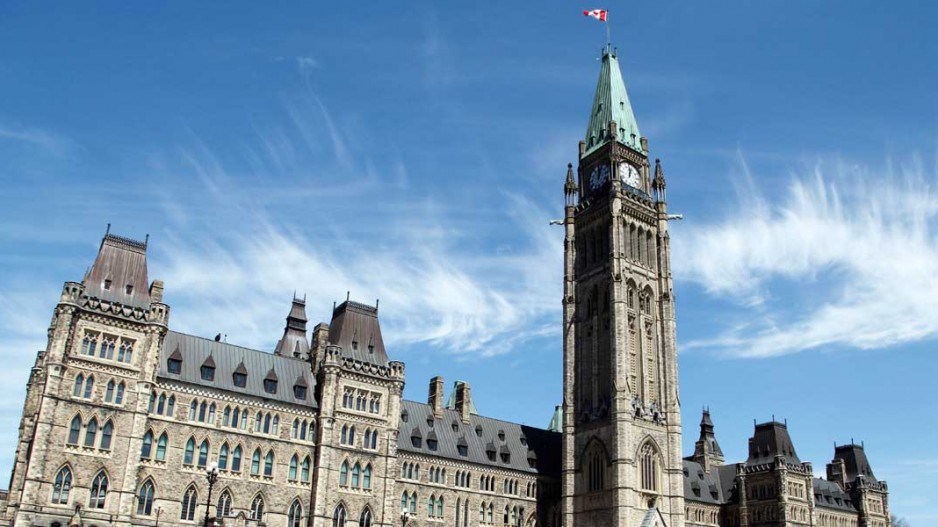The federal government is expanding the Canadian Emergency Response Benefit (CERB) to help those previously not eligible and will soon offer some essential workers a top up in pay.
Prime Minister Justin Trudeau said Wednesday (April 15) government will loosen eligibility requirements for the $2,000 monthly CERB, allowing those still earning up to $1,000 a month to apply for the program.
Seasonal workers facing fewer job prospects in the warmer summer months will also be able to apply for the CERB as well as workers whose Employment Insurance benefits have recently been exhausted.
Trudeau also announced essential workers — notably those in care centres — making less than $2,500 a month will soon get a wage top-up.
“We know conditions have gotten more difficult over the past week,” the prime minister said during his daily media briefing outside his home in Ottawa.
The federal government will begin speaking to the provinces and territories Thursday about delivering the wage top-up to workers, he added.
B.C. estimates it will cost the province $10 million a month to cover its top-up for long-term care workers, who are no longer allowed to work at multiple facilities.
The prime minister was also pressed on the Americans’ decision Wednesday to pull funding from the World Health Organization (WHO).
U.S. President Donald Trump had criticized WHO for not being critical enough of COVID-19 data being provided by Beijing.
Conservative Leader Andrew Scheer and Alberta Premier Jason Kenney have also been critical of China in recent days.
Trudeau, however, appeared reluctant to offer similar critiques of the Communist Party of China.
“What we need to remember is the path through this pandemic is for us to base ourselves on science, on the recommendations of experts, on data and the knowledge that we’ve gathered from past pandemics and past health issues to apply to these situations. And that’s why we will always continue to work with experts both domestically and internationally to take the best advice possible to keep Canadians safe,” he said.
“Of course, in the coming months and years there will be many reflections on various institutions and systems, both domestically and internationally, on how we can improve our response, how we can learn from things we could have done better in this process.”
The prime minister, who said Trump had not exerted any pressure on Canada regarding WHO funding, will be speaking to other G7 leaders Thursday about the World Health Organization.
Meanwhile, an outbreak at a federal prison in Mission, B.C., prompted provincial health officials on Tuesday to redeploy a mobile hospital from the Vancouver Convention Centre in Vancouver to Abbotsford.
Seven inmates are in hospital while 41 inmates have now tested positive.
“We’ve taken significant steps to ensure that our incarcerated population is kept safe as possible from COVID-19,” Trudeau said Wednesday, referring to inmates throughout the country.
While the prime minister repeatedly mentioned government had taken measures to ensure the safety of inmates and guards, he pointed to only one example: a reduction in the number of transfers.
Trudeau’s earlier economic announcements came amid grim figures from various Canadian institutions.
Statistics Canada released a “nowcast” earlier in the day that revealed the nation’s GDP shrank 9% in March, the largest one-month decline since the national agency began tracking the data in 1961.
The cratering of the economy in March makes for a 2.6% decline in GDP for the first quarter of 2020.
Unusual for the Bank of Canada, however, was that it did not offer a forecast for the economy following its rate announcement in the morning.
The central bank, which maintained its overnight rate of 0.25% following two unscheduled cuts the month before, said it would be problematic to release such a forecast amid ongoing economic uncertainty.
But the Bank of Canada revealed it would be purchasing up to $50 billion in provincial bonds and up to $10 billion in corporate bonds to bolster the economy amid the pandemic.
While the economic uncertainty persists, Trudeau repeated pleas for Canadians to be patient.
“It will be weeks more before we can seriously consider loosening the restrictions. It would be terrible if we were to release restrictions too early and find out that we’re suddenly back in a big wave of COVID-19 and everything we’ve gone through up to now would have been for nothing,” he said.
The prime minister said the loosening of restrictions will vary from region to region and industry to industry, while requiring co-ordination on the federal level.
“One size fits all will not work for a country as diverse as Canada,” Trudeau said.




